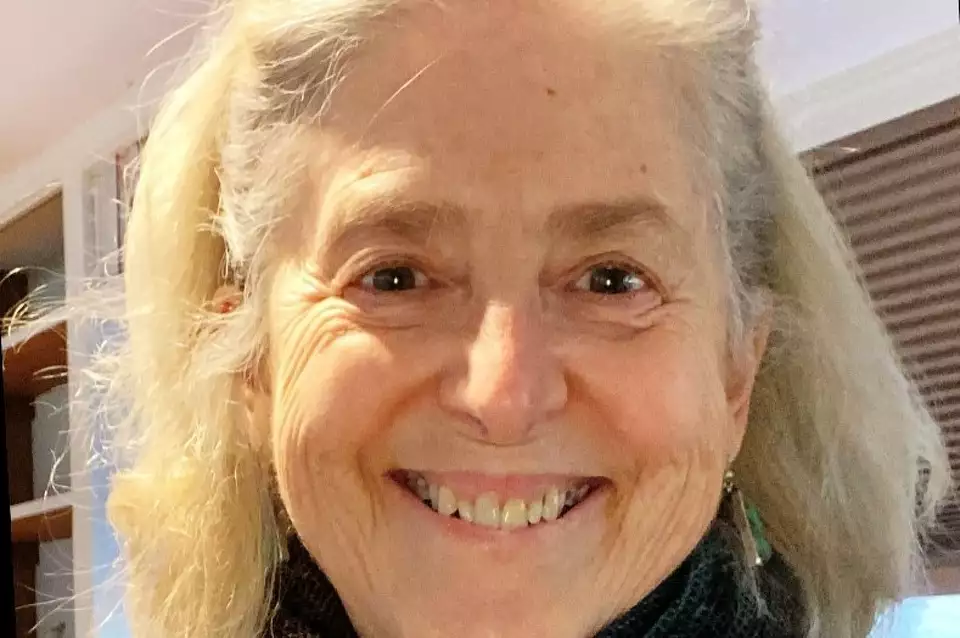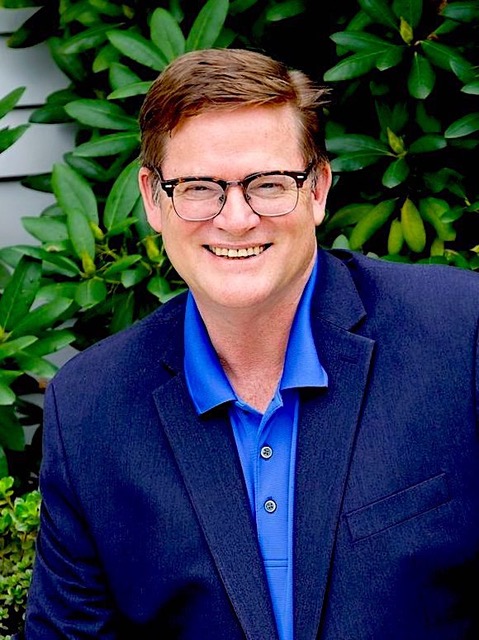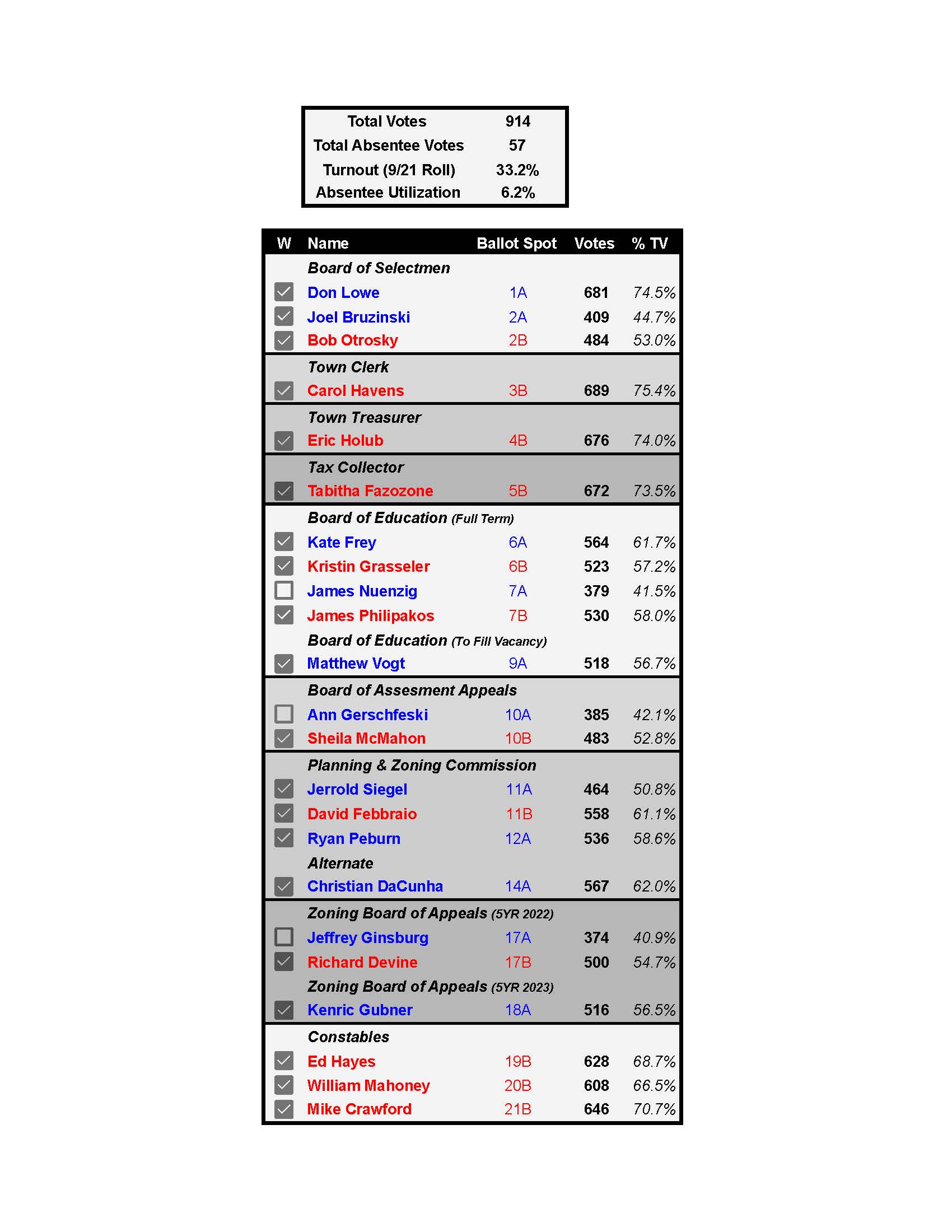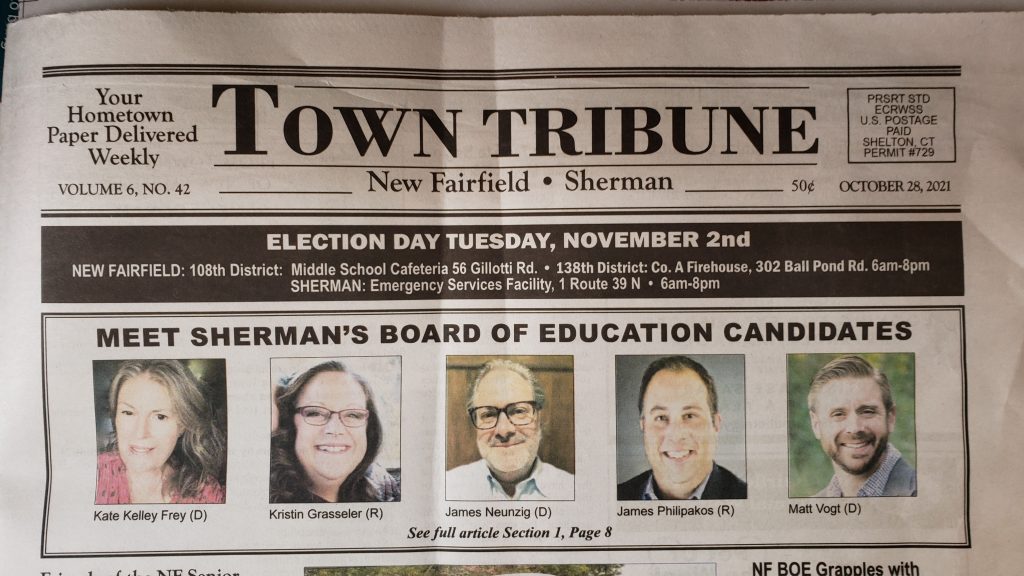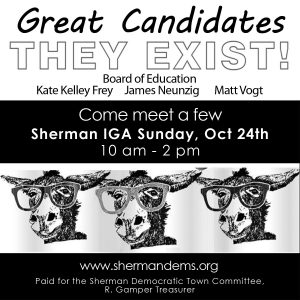
Callahan and Ginsburg, running for 108th District, share Candlewood Lake as priority but little else

Patrick Callahan and Jeff Ginsburg have little in common, aside from their love of Candlewood Lake.
As they seek to be elected state representative of Connecticut’s 108th House District this November, the candidates present distinctive perspectives on how to improve the state and cite different priorities from addressing youth crime to supporting senior citizens.
Callahan is a longtime New Fairfield resident, seeking a second term in the seat he’s held since defeating Democrat Dannette Onofrio in the 2020 election.
“I’m looking forward to how productive I can be with the relationships I’ve taken the past two years to develop,” said the Republican incumbent, who has served on the legislature’s Education, Environment, Judiciary and Juvenile Justice Policy & Oversight committees.
“You’re getting your feet wet your freshman first two years,” Callahan said, “and I feel like I’ve made some really great connections and working relationships with both sides of the aisle.”
Ginsburg — a Democrat who’s lived in Sherman for nearly 20 years — said he decided to run for the 108th House District seat for several reasons.
“I realized that the towns have a number of common interests, and I’ve gotten to a point in my life where I like advocating for those interests,” he said. “I have a threshold of experience working in and with local organizations, and I think it’s time that I start giving back.”
In addition to serving as chair of the Sherman Democratic Town Committee, Ginsburg is a founding member of both the Sherman Artists Association and the Great Hollow Photographers Club. He’s also a member of the board of directors for the Candlewood Yacht Club in New Fairfield and chairs the organization’s finance committee.
Whoever is elected in November will represent a slightly different 108th House District. As a result of recent changes to Connecticut’s voting district lines, the 108th will include a larger number of New Fairfield constituents as of 2023.
The town’s southwestern corner — which currently belongs to the 138th House District — will become part of the 108th, joining all of Sherman, a section of western New Milford and part of northern Danbury.
Candlewood Lake
Both candidates said Candlewood Lake would be among their top priorities if elected or re-elected representative of the 108th House District.
The issues they say they would focus on, though, are different.
Ginsburg said serving on the Candlewood Yacht Club’s board of directors for the last 10 years has given him a greater understanding of the lake, as well as the impact it has — and could have — on the area.
“The five towns on the lake — four of which are in the 108th District — do not have a commission where they work together to enhance the economy as the lake contributes to that,” he said. “That would be something … that I would advocate for from my position.”
Ginsburg said such a commission would differ from the Candlewood Lake Authority in that its primary focus would be the “economic aspect” of the lake.
“The lake is very important to me. I live on the lake, I recreate on the lake and I know that it’s a critical economic force for our area’s economy,” he said.
Callahan — who served as chairman of the Candlewood Lake Authority for 10 years — said Candlewood Lake is “always a top priority,” and he also has concerns about Squantz Pond State Park in New Fairfield.
“The issues we’re having at Squantz with the influx of out-of-staters through the summer months on the weekends have to be addressed,” he said. “I’m also really concerned about people parking their cars wherever they want and walking with children down Route 39 to Squantz Pond when it’s full.”
It’s been a safety concern for years and town officials have tried to restrict people walking along the road to get to the park — either by asking the state to restrict walk-ins or cracking down on illegal parking in town — but the problem persists.
Callahan: Affordability and juvenile crime
If re-elected, Callahan said some of his other priorities would be affordability and juvenile crime.
“Affordability is the top one,” he said. “In the past two years, Democrats have passed a couple of new gas taxes that are going to cost us a lot of money on the highway use tax and the diesel tax.”
Driven by wholesale fuel prices that more than doubled over the past year, the tax on diesel saw a 9.1 cent increase in July — six months before the imposition of Connecticut’s new highway use tax on large commercial trucks, which is expected to cost the industry millions of dollars per year.
“We use diesel to heat our homes and any tax you put on a truck delivering goods is going to get passed down onto the consumer,” Callahan said. “We continue to tax people that serve us and it continues to drive up the cost of living in Connecticut — even more so than inflation.”
Callahan — who worked in law enforcement for almost 30 years — said juvenile crime is still a problem, and one he would keep fighting to address if re-elected.
He said part of the ongoing juvenile crime problem is that the courts go too easy on youthful offenders.
“In the pre-trial process, there’s no accountability. There’s nothing being done to curb it,” Callahan said. “There has to be consequences, and right now there aren’t.”
Even though Republicans presented “several different solutions” in the past two sessions that all got voted down, Callahan said he’s determined to continue trying.
“I’ve worked with so many different groups of people and kids to turn their lives around,” he said. “If they’re not getting disciplined and not seeing consequences early on, they think they can keep doing this forever and it escalates into larger crimes — and then they wind up in jail.”
Ginsburg: Senior citizens and zoning
If elected, Ginsburg said one of his other priorities would be “ensuring that senior residents have good options for staying and enjoying the area.”
He said he would focus on what can be done financially and organizationally at the state level to “improve what’s going on for the seniors.”
When asked if housing would be part of his focus, Ginsburg said he would work with the towns “to see what resources are available from the state level,” but the decision would ultimately be up to them.
“I would certainly be in the mix, asking questions and making sure people are making decisions very explicitly — but the towns would have to drive it and decide to what extent,” he said.
Ginsburg said he knows several older residents who had to move out of the area due to a lack of alternative, smaller-scale housing options. He also knows the topic of housing development can be controversial.
“With some people, there’s that not-in-my-backyard kind of syndrome — and others say, ‘Look, people are moving out,’” he said. “It’s going to be a compromise, but I think the platform of being a state representative might help bring attention to that, and I think it’s something worth looking at.”
Ginsburg — who manages residential apartments in the Danbury area and has helped tenants obtain emergency rental and other types of assistance over the years — said he gets his passion to help people from his dad.
“My father had the biggest drug store in Danbury, and he always went out of his way to provide outstanding service and help customers,” he said. “That has inspired me to do that with my tenants and in my career.”
Ginsburg said keeping zoning regulations within the control of the towns would be another priority of his as a state representative.
“Each town is different, so I want to make sure they have the autonomy to determine their own zoning regulations because that affects the quality of life in a town,” he said.
Callahan said that is something he, too, feels strongly about.
“I want to make sure that control over zoning remains local, and I always vote that way — to protect our communities and our ability to handle our own zoning,” he said.
2022 election
Callahan said he believes he’s done a good job representing the 108th district and hopes voters re-elect him in November.
